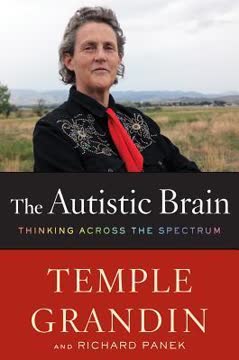重点摘要
1. 自闭症是一种神经发育差异,而不是需要治愈的疾病
自闭症只是我们世界上神经多样性的一种来源。
重新思考自闭症。 自闭症是一种以感觉处理、社交沟通和兴趣模式的差异为特征的神经状态。与其将其视为需要治愈的疾病,越来越多的人将其理解为人类神经学的自然变异。自闭症大脑以不同的方式处理信息,通常对细节有更高的关注度,并倾向于自下而上的思维方式。
神经多样性范式。 这种观点将自闭症视为人类多样性的一部分,与多动症、阅读障碍和双相情感障碍等其他神经类型并列。它强调:
- 接受和适应差异,而不是试图“修复”它们
- 认识到与自闭症相关的挑战和优势
- 将重点从医学干预转向社会接受和支持
神经多样性运动倡导自闭症的接受,挑战大脑功能只有一种“正常”方式的观念。这种方法旨在减少污名,促进包容性环境,使自闭症个体能够按照自己的方式茁壮成长。
2. 掩饰自闭症特征代价高昂
掩饰是一种令人筋疲力尽的表演,导致身体疲劳、心理倦怠、抑郁、焦虑,甚至自杀意念。
掩饰的压力。 许多自闭症个体感到必须隐藏他们的自然特征和行为,以融入神经典型社会。这种“掩饰”或“伪装”可能包括:
- 压抑自我刺激行为
- 强迫眼神接触
- 模仿神经典型的社交行为
- 隐藏特殊兴趣
掩饰的代价。 虽然掩饰可能帮助自闭症个体应对社交场合或工作场所的期望,但它带来了显著的代价:
- 精神疲劳和倦怠
- 增加的焦虑和抑郁
- 失去真实的自我表达
- 延迟自闭症诊断,尤其是女性和边缘化群体
长期掩饰可能导致自闭症倦怠,一种慢性疲劳、技能丧失和对压力的耐受性降低的状态。认识到并减少掩饰的需要对于自闭症个体的福祉和自我接受至关重要。
3. 自闭症经历多种多样,打破刻板印象和媒体描绘
自闭症是一种特别多样和多变的神经差异形式;我们因偏离常规而受到惩罚的方式有很多。
多样化表现。 自闭症在每个个体身上表现不同,挑战狭隘的刻板印象。这种多样性包括:
- 沟通方式:从不说话到非常健谈
- 感觉体验:对各种刺激的过度或不足敏感
- 特殊兴趣:从学术科目到流行文化
- 社交能力:有些自闭症个体外向,有些则喜欢独处
自闭症的交叉性。 自闭症与身份的其他方面相互作用,包括:
- 性别:女性、非二元性别和跨性别自闭症个体的经历不同
- 种族和文化:自闭症在不同文化中表现和被感知的方式不同
- 共病状况:许多自闭症个体还有多动症或焦虑等其他诊断
认识到这种多样性对于改善诊断、支持和社会理解至关重要。它挑战了单一“自闭症外观”或行为的观念,强调需要个性化的支持和适应方法。
4. 自我诊断和自我实现是通向自闭症身份的有效途径
我坚决支持自闭症个体的自我决定。我更喜欢使用自我决定或自我实现的术语,而不是自我诊断,因为我认为通过社会视角看待自闭症身份比单纯的医学视角更为合理。
正式诊断的障碍。 许多自闭症个体,尤其是那些有效掩饰的人,面临获得正式诊断的障碍:
- 高昂的费用和有限的保险覆盖
- 长时间的等待和缺乏合格的专业人员
- 诊断标准中的偏见,特别是针对女性和少数群体
- 正式诊断的污名和潜在负面后果
自我实现的价值。 即使没有正式诊断,认识到自己是自闭症个体也可以带来变革性的影响:
- 为终生的挣扎和差异提供解释
- 允许访问自闭症社区和资源
- 赋权个体寻求适应和自我倡导
- 挑战狭隘的医学化自闭症观念
自我认同在自闭症社区中越来越被接受,认识到当前的诊断系统未能捕捉到许多自闭症经历。它强调个人理解和社区联系,而不是医学标签。
5. 去掩饰涉及拥抱自闭症特征和重新定义个人价值观
去掩饰就是展现一种不屈服的骄傲,拒绝在神经典型需求的重压下屈服。
重新发现真实性。 去掩饰是允许自己真实地表现自闭症特征的过程。这包括:
- 认识并挑战内化的能力主义
- 拥抱自我刺激和其他自然的自闭症行为
- 探索并公开分享特殊兴趣
- 根据感觉和社交需求设定界限
重新定义价值观。 去掩饰通常需要重新评估社会期望和个人价值观:
- 质疑神经典型的成功和生产力定义
- 优先考虑福祉和真实性而非顺从
- 认识并重视自闭症的优势和视角
去掩饰是一个渐进的、通常具有挑战性的过程。在学习更真实地导航世界的过程中,可能会经历脆弱和调整的时期。然而,许多自闭症个体报告通过去掩饰显著改善了心理健康和生活质量。
6. 建立自闭症友好生活需要重新想象成功和时间
扩展你用来衡量生产力和成功的时间框架。以长远的眼光看待你的生活。不要害怕回到旧项目,或者在激情不再为你服务时放手。
重新思考生产力。 传统的生产力观念往往与自闭症的需求和优势相冲突。自闭症友好的方法可能包括:
- 拥抱集中注意力的时期(超焦)并与恢复时间平衡
- 根据能量水平而不是固定时间表来安排工作
- 重视知识的深度和对细节的关注
自闭症友好环境。 创建支持自闭症福祉的空间:
- 感觉友好的修改(如照明、声音、质地)
- 清晰的沟通和期望
- 社交互动和工作安排的灵活性
重新定义成功。 自闭症个体的成功可能看起来不同:
- 优先考虑个人成长和福祉而非社会基准
- 认识到在特殊兴趣领域的成就
- 重视真实的关系而非社交连接的数量
这种重新想象通常涉及挑战关于工作、社交生活和个人发展的深深根植的社会规范。它强调创建一个与自闭症需求和优势相一致的生活,而不是强迫顺从神经典型标准。
7. 创建一个神经多样性世界需要系统性变革和更广泛的接受
所有自闭症个体能够去掩饰的唯一方法是社会发生巨大变化。一个具有更灵活规范和更少污名的世界是一个更易接近的世界,残疾更少,人类痛苦也更少。
系统性障碍。 自闭症个体面临众多社会障碍:
- 教育系统无法支持多样化的学习风格
- 工作场所歧视和缺乏适应
- 医疗系统对自闭症需求的理解有限
- 社会期望优先考虑神经典型的沟通方式
变革之路。 创建一个更友好的神经多样性世界需要:
- 更新法律和政策以更好地保护和支持自闭症个体
- 改善对医疗、教育和执法专业人员的自闭症教育
- 增加自闭症在媒体、政治和决策角色中的代表性
- 促进公众对神经多样性的更大理解和接受
对所有人的好处。 一个适应自闭症需求的世界通常会变得对所有人更易接近和舒适:
- 清晰的沟通对所有神经类型的人都有好处
- 感觉友好的空间减少了许多人的压力
- 灵活的工作安排改善了整体的工作与生活平衡
最终,拥抱神经多样性不仅仅是支持自闭症个体——它是关于创建一个更包容、更适应和更富有同情心的社会。
最后更新日期:
FAQ
What's Unmasking Autism about?
- Exploration of Autism Spectrum: Unmasking Autism by Devon Price explores the complexities of Autism, focusing on the experiences of masked Autistics who hide their true selves to fit into neurotypical society.
- Personal Journey: The author shares their own late-life Autism diagnosis, highlighting struggles and societal pressures that lead to masking.
- Advocacy for Acceptance: The book advocates for a broader understanding of neurodiversity, encouraging readers to embrace their unique traits and challenge societal norms.
Why should I read Unmasking Autism?
- Insightful Perspectives: It offers valuable insights into the experiences of Autistic individuals, especially those overlooked or misdiagnosed due to societal biases.
- Empowerment and Self-Acceptance: The book provides tools and strategies for self-acceptance and unmasking, emphasizing the importance of living authentically.
- Cultural Relevance: With growing awareness of neurodiversity, this book is timely and relevant for understanding Autism beyond stereotypes.
What are the key takeaways of Unmasking Autism?
- Understanding Masked Autism: Introduces the concept of "masked Autism," where individuals camouflage traits to avoid stigma.
- The Cost of Masking: Discusses the emotional toll of masking, including anxiety, depression, and burnout, as a survival strategy.
- Community and Connection: Highlights the importance of finding community among Autistic individuals for self-acceptance and belonging.
What is "masked Autism" as defined in Unmasking Autism?
- Definition of Masked Autism: Refers to Autistic individuals who hide their traits to conform to societal expectations.
- Social Exclusion Factors: Factors like gender, race, and socioeconomic status contribute to the masking phenomenon.
- Consequences of Masking: Leads to mental health challenges, including depression and anxiety, due to maintaining an inauthentic façade.
How does Unmasking Autism redefine common stereotypes about Autism?
- Challenging Stereotypes: Argues that stereotypes, like lacking empathy, are overly simplistic and don't reflect the diversity within the Autistic community.
- Highlighting Strengths: Reframes traits viewed negatively, such as sensitivity, as valuable qualities.
- Cultural Context: Emphasizes that societal expectations shape Autism perceptions, crucial for fostering acceptance.
What are some strategies for unmasking mentioned in Unmasking Autism?
- Self-Reflection Exercises: Includes exercises like the "Values-Based Integration Process" to help readers reconnect with their true selves.
- Celebrating Special Interests: Emphasizes embracing special interests as a source of joy and identity.
- Building Community: Advocates for seeking supportive communities, like Autistic self-advocacy groups, to share experiences.
What are the psychological effects of masking discussed in Unmasking Autism?
- Increased Anxiety and Depression: Masking leads to heightened anxiety and depression due to pressure to conform.
- Emotional Exhaustion: The effort to mask one's true self results in emotional burnout and disconnection from identity.
- Self-Stigma: Many masked Autistics internalize negative stereotypes, leading to feelings of shame and inadequacy.
How does Unmasking Autism address the topic of self-advocacy?
- Empowerment Through Self-Advocacy: Emphasizes the importance of self-advocacy for Autistic individuals to foster a sense of agency.
- Practical Strategies: Provides advice on advocating for oneself, including clear communication of needs and boundaries.
- Building Supportive Networks: Highlights the value of connecting with other Autistic individuals and allies to strengthen advocacy efforts.
What is the significance of "radical visibility" in Unmasking Autism?
- Definition of Radical Visibility: Embracing and openly expressing one's Autistic identity without shame.
- Empowerment Through Expression: Discusses how radical visibility empowers individuals to take pride in their identity.
- Creating Inclusive Spaces: Advocates for environments that celebrate neurodiversity and accommodate different needs.
How does Unmasking Autism suggest building an Autistic life?
- Identifying Strengths and Values: Encourages reflection on strengths and values to build a fulfilling life.
- Divergent Design: Introduces creating environments that cater to Autistic sensory needs.
- Flexibility and Adaptation: Emphasizes the importance of flexible routines and environments aligned with individual needs.
What are some personal stories shared in Unmasking Autism?
- Crystal's Journey: A masked Autistic woman diagnosed in her late twenties, illustrating challenges faced by undiagnosed individuals.
- Timotheus's Experience: Discusses masking sensitivity and interests, highlighting the intersection of race and disability.
- Dorian's Struggles: Shares their journey with eating disorders and societal pressures, showcasing Autism's complex relationship with mental health.
What are the best quotes from Unmasking Autism and what do they mean?
- "Masking is an exhausting performance...": Highlights the toll of masking, emphasizing the need for acceptance.
- "Refusing to perform neurotypicality...": Stresses authenticity and self-acceptance as resistance against marginalization.
- "Being Autistic is a source of uniqueness...": Celebrates Autism as a valuable aspect of identity, not something to hide.
评论
《揭开自闭症的面纱》评价不一,有人称赞其对自闭症和掩饰行为的深刻探讨,也有人批评其过于关注性别认同且缺乏科学严谨性。读者们欣赏书中多样的视角和实用的练习,但也指出其内容重复且过于集中于特定亚群体。一些人认为这本书具有验证性和信息量,而另一些人则认为它过于简化自闭症并做出广泛的概括。书中关于自我诊断的立场及其揭开掩饰行为的方法在评论者中引发了争议。
Similar Books












